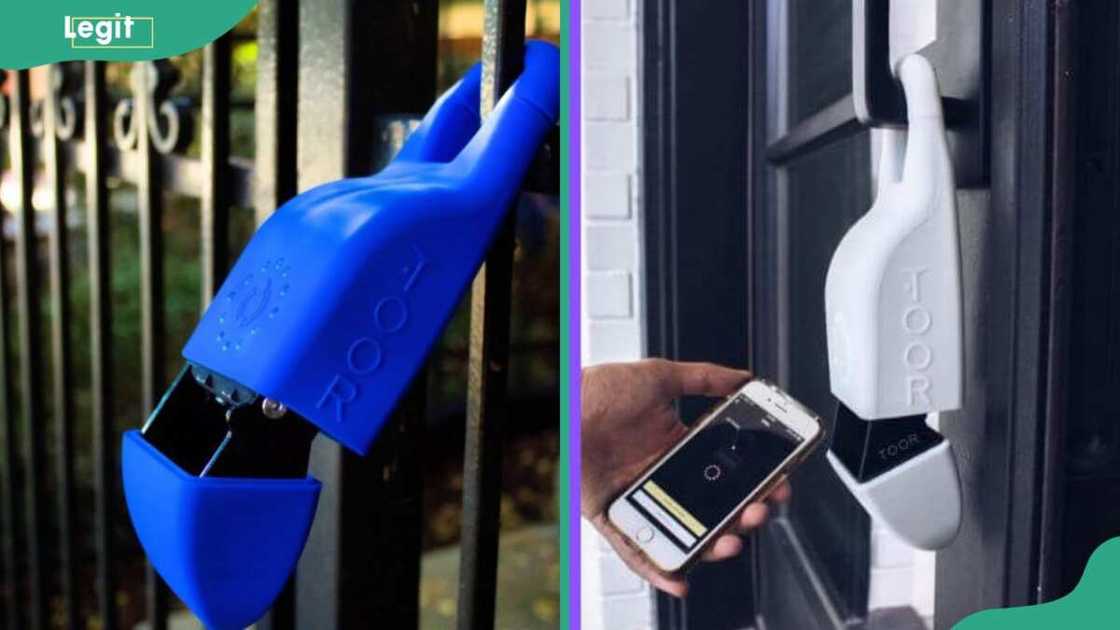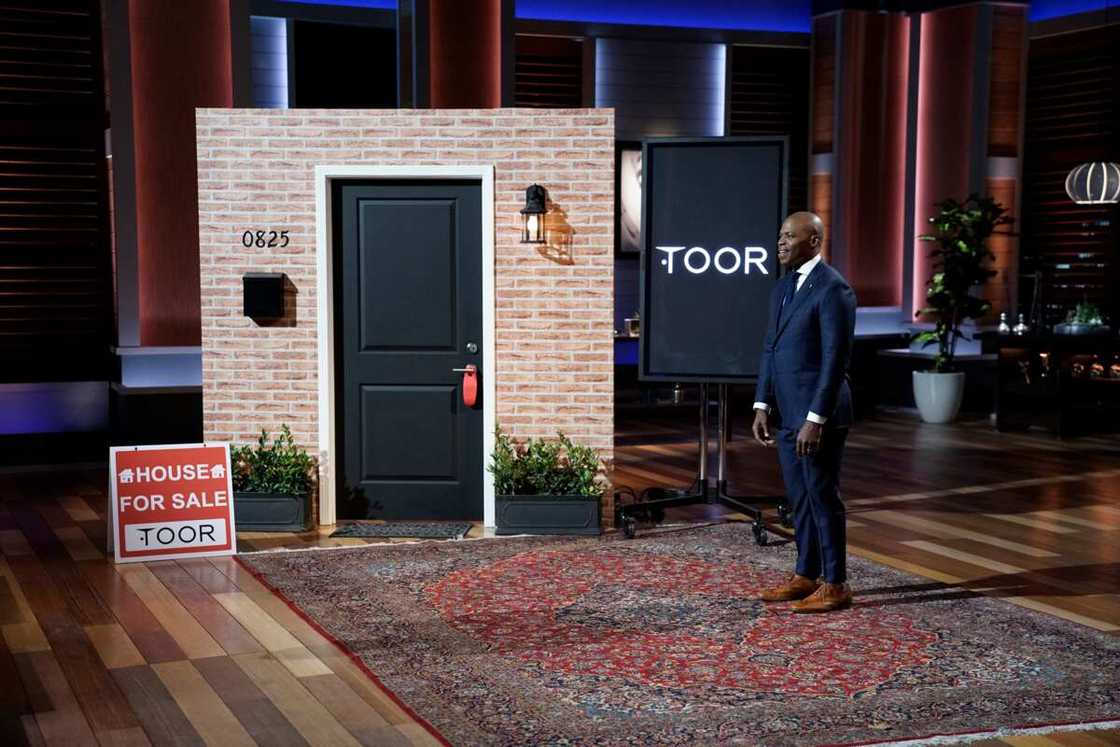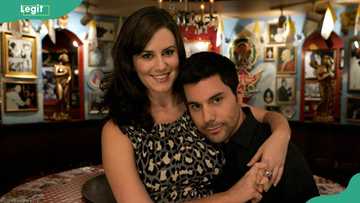What happened to Toor after Shark Tank: is it still in business?
Toor was a business idea pitched on Shark Tank’s eighth season in 2016. The founder pitched it as a digital tool to revolutionise the real estate industry. Two Sharks were impressed by the idea and invested in it. Over seven years later, viewers are curious whether the business is still thriving. Find out what happened to Toor after impressing Sharks on the reality show.

Source: UGC
Producer Mark Burnett came up with the concept for Shark Tank. Burnett is also the brain behind Survivor and The Apprentice. Interestingly, the show’s idea originated in Japan as The Tigers of Money. The same concept premiered in Britain as Dragon’s Den in 2005 before being launched in the United States in 2009.
What is Toor?
Toor is a smart lockbox pitched on season 8 of the business reality TV show Shark Tank. The tool was meant to streamline how realtors, contractors and home sellers connect with potential buyers. The company, Toor Today, marketed its core product, the Toor lockbox. The lockbox is a smart device attached to the doors of listed houses and has an accompanying mobile app.
A client who spots a house they’re interested in viewing would request access via the app. The lockbox would then alert the property owner, who could use Bluetooth and cellular technology to allow the client access to the property. The device aimed to eliminate the scheduling hiccups between clients and homeowners.
Potential buyers wouldn’t have to wait until a realtor arranged an open house. However, there was a safety concern, as some property owners would be uncomfortable with a stranger being in their home unaccompanied. To solve this challenge, the app offered the option to alert a nearby realtor when one was required.
Toor Shark Tank pitch

Source: Getty Images
The founder, Junior Desinor, demonstrated the app’s functionality with the help of Barbara Corcoran. He explained the security features, emphasising that the app would alert the homeowner if the viewer didn't return the key. Junior valued the idea at $5 million and asked the Sharks for a $500,000 investment in exchange for 10% equity.
The Sharks hesitated when the founder revealed he had not made lockbox sales. However, he had secured backing from Kickstarter. The crowdfunding efforts had raised over $100,000, and 800 lockboxes had been pre-ordered.
Who invested in Toor?
After Junior’s pitch, Lori Greiner was the first Shark to back out, saying she felt it was too early to invest. Chris Sacca was uncomfortable investing as he wasn’t sure Toor was new technology. Mark Cuban also refused to support it as he admitted that he didn’t know enough about the real estate business.
Barbara Corcoran and affluent businessman Kevin O'Leary were the two Sharks who invested in the business. Kevin offered $100,000 in exchange for a 10% share. He also provided a $400,000 loan at an 18% interest rate. Barbara also expressed interest. Junior countered their offer, suggesting $250,000 upfront for 10% and a loan of $250,00.
The Shark duo discussed and returned with their final offer of $200,000 upfront for 10% and a $300,000 loan. Junior accepted the terms and agreed to participate. Barbara and Kevin were impressed with Junior, calling him the best salesman they had ever met.
Who is the owner of Toor?
Junior Desinor is an American entrepreneur. He was born to Haitian immigrant parents and raised in Dallas, Texas. Desinor’s family struggled with finances when he was growing up. His parents worked five jobs to afford to put him and his sister in a good school. He majored in real estate finance at Texas Tech University.
Desinor began his entrepreneurial journey at eighteen when he started a party supply business with his college roommate. The company was successful enough that the duo used its profits to buy their first real estate property. They flipped the house, making a $20,000 profit. With this first success, Desinor started renovating and flipping homes and building others.
Desinor obtained his real estate license by 23, making him one of the youngest real estate brokers in the state. According to his website, he founded his first 6-figure business in 2005 and his first 7-figure business five years later.
Toor Shark Tank update
According to the Shark Tank Blog, Desinor’s deal with the Sharks never closed. The state of his deal with Kevin and Barbara remained in limbo for a long time. Despite the contract with the Sharks falling through, Shark Tank brought Toor a lot of exposure.
What happened to TOOR after Shark Tank?
Toor partnered with Touch of Modern, a members-only e-commerce website and app, in 2018. Touch of Modern made the lockboxes available for sale on its platform, and shipping started the same year. Toor lockboxes were also listed for sale on Inman, a real estate news publisher. Additionally, Umber Realty, a Canadian real estate agency, signed on as a client.

Read also
Tax waivers, staff employment: Keyamo exposes unfairness in Nigeria Air deal with Ethiopian Airlines
As of December 2020, Desinor had launched the product. To address concerns about the safety of the customers, property and agents, Toor further partnered with an unnamed identification verification company.
However, the Toor company was not the first to try this method. Marketplace Homes tried it with their Zip Tours real estate app, which intended to make the home purchasing process virtual. Zip Tours went further by providing virtual home tours when the pandemic hit.
The market was reportedly not receptive to the idea, though. Zip Tours seems to have gone under, with no new social media updates since November 2020.
Where is Toor now?
As of December 2023, Toor still has a LinkedIn page. The page provides a detailed description of the company and its product. However, there haven’t been any posts on the page, and the company only lists the founder under employees.
Is Toor still in business?
The company’s LinkedIn page links back to the Toor Today website. In March 2023, the Shark Tank blog stated that although the website was running, it was impossible to order a lockbox. As of December 2023, the page is completely unresponsive.
Is Toor successful?
The company seems to have failed and is not in business as of December 2023. It may have sold several units when Desinor first launched. However, the initial success seemingly didn’t last. The company reportedly made only $9,000 in lifetime sales. Additionally, there has been no perceivable progress for the company since 2018.
What is Toor’s net worth?
The company’s net worth is allegedly $200 as of December 2023. Similarly, it makes no annual sales. The company’s LinkedIn page announced a $1.5 million Seed funding round via Crunchbase but shows zero investors.
What happened to Junior Desinor?
Desinor continued his entrepreneurship journey despite Toor’s failure. He opened City Naturals, a wellness business, with his wife in Dallas. Desinor has also channelled his vast experience and become a real estate investor. He founded Good Capital Partners, a boutique alternative investment group focusing on hotels. He is also a family man.
Toor was an exciting and daring business idea on Shark Tank. Despite some Sharks doubting its innovativeness, the founder secured a $200,000 investment. However, not all ideas backed by the capitalists worked out, and Toor was one of the ones that failed. As of 2023, the company seems to have gone under, with no indications of ever making impressive profits.
Legit.ng recently published an article on whether Catfish is real. Catfish is an American reality documentary television series. The show premiered on MTV on 12 November 2012. The show portrays people’s experiences with online dating, including the catfishes encountered. The hosts are Nev Schulman and Max Joseph.
Since its 2012 debut, the show has grown widely popular in the US and globally. It is equally educational and entertaining, with the advantage of being relatable to many who have tried online dating. However, fans have expressed some doubts about Catfish’s authenticity. Read more about what goes on behind the scenes and whether the series is real or fake.
Source: Legit.ng







